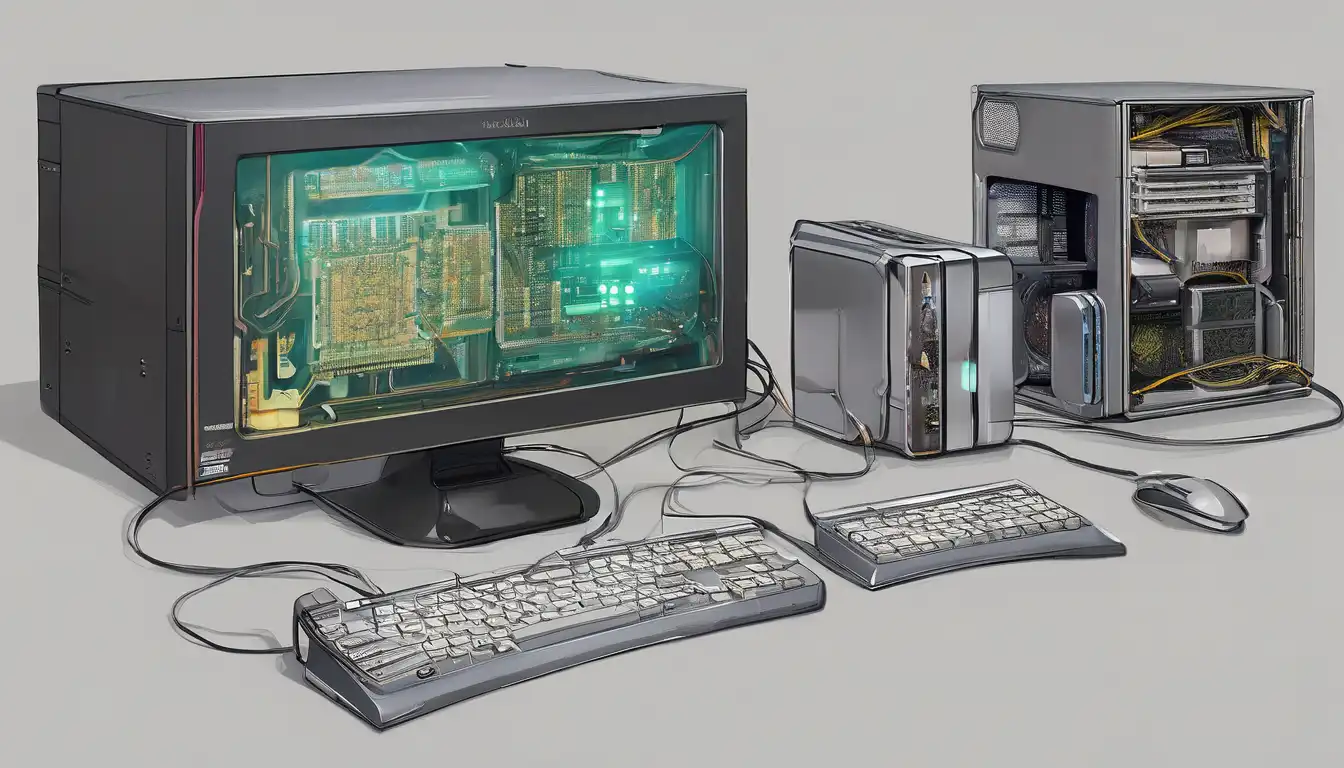Revolutionary Advances in Computer Hardware Technology
The landscape of computer hardware is undergoing unprecedented transformation, with innovations emerging at an accelerated pace. From quantum computing breakthroughs to AI-optimized processors, the latest developments are reshaping how we interact with technology. These advancements promise not only faster performance but also greater efficiency and capabilities that were once confined to science fiction.
Next-Generation Processors and Architecture
The processor market has seen remarkable evolution with chip manufacturers pushing the boundaries of Moore's Law. Modern CPUs now feature advanced architectures like ARM's Neoverse and x86 hybrid designs that combine performance and efficiency cores. These processors deliver exceptional multitasking capabilities while maintaining energy efficiency, making them ideal for both mobile devices and high-performance computing systems.
Key innovations include:
- 3D stacking technology allowing for denser transistor placement
- AI-accelerated instruction sets for machine learning workloads
- Advanced thermal management solutions for sustained performance
- Integrated security features at the hardware level
Graphics Processing Units (GPUs) Evolution
GPUs have transcended their traditional role in gaming to become essential components for AI research, scientific computing, and creative workflows. The latest GPU architectures feature ray tracing acceleration, tensor cores for AI processing, and unprecedented memory bandwidth. These advancements enable real-time rendering, complex simulations, and accelerated machine learning training that were previously impossible.
Manufacturers are focusing on:
- Real-time ray tracing capabilities for photorealistic graphics
- Dedicated AI processing units within GPU architectures
- Advanced cooling solutions for high-performance computing
- Energy-efficient designs for sustainable computing
Memory and Storage Breakthroughs
The memory and storage sectors have witnessed revolutionary changes with the advent of new technologies. DDR5 memory offers significantly higher bandwidth compared to previous generations, while storage solutions like PCIe 5.0 SSDs provide blistering read/write speeds. These improvements dramatically reduce loading times and enhance overall system responsiveness.
Notable developments include:
- DDR5 memory with speeds exceeding 6400 MT/s
- PCIe 5.0 solid-state drives with sequential read speeds over 10 GB/s
- 3D XPoint technology for persistent memory applications
- Advanced error correction for improved data integrity
Quantum Computing Hardware Progress
Quantum computing represents the frontier of hardware innovation, with major tech companies making significant strides in qubit stability and scalability. While still in early stages, quantum processors are demonstrating capabilities that could revolutionize fields like cryptography, drug discovery, and optimization problems. The hardware challenges include maintaining quantum coherence and developing error correction mechanisms.
Current quantum hardware focuses on:
- Increasing qubit counts while maintaining coherence
- Developing fault-tolerant quantum computing architectures
- Creating scalable quantum processing units (QPUs)
- Improving quantum error correction techniques
AI-Optimized Hardware Solutions
Specialized AI hardware has emerged as a critical component in the technology ecosystem. From neural processing units (NPUs) in consumer devices to dedicated AI accelerators in data centers, these specialized chips are designed specifically for machine learning workloads. They offer significant performance improvements and energy efficiency compared to general-purpose processors when handling AI tasks.
AI hardware innovations include:
- Dedicated tensor processing units for deep learning
- Neuromorphic computing chips mimicking biological neural networks
- Edge AI processors for on-device machine learning
- Federated learning optimized hardware for privacy-preserving AI
Cooling and Power Management Advances
As hardware components become more powerful, effective cooling and power management have become increasingly critical. Liquid cooling solutions, phase-change materials, and advanced thermal interface materials are enabling higher sustained performance levels. Meanwhile, power delivery systems have evolved to provide cleaner, more efficient power to demanding components.
Recent cooling and power innovations feature:
- Direct-die cooling solutions for improved thermal transfer
- Advanced vapor chamber designs for efficient heat dissipation
- Digital power controllers for precise voltage regulation
- Energy harvesting technologies for low-power devices
Connectivity and Interface Technologies
The latest connectivity standards are transforming how devices communicate and transfer data. Technologies like Wi-Fi 7, Thunderbolt 4, and USB4 offer unprecedented speeds and capabilities. These advancements enable seamless integration between devices and support emerging applications like augmented reality and high-resolution video streaming.
Key connectivity developments include:
- Wi-Fi 7 with multi-link operation for reduced latency
- Thunderbolt 4 supporting 40 Gbps data transfer
- USB4 with improved power delivery capabilities
- Optical interconnect technologies for high-speed data centers
Future Trends and Emerging Technologies
The future of computer hardware promises even more dramatic innovations. Technologies like photonic computing, memristors, and biological processors represent the next wave of advancement. These emerging technologies could fundamentally change how we approach computing, offering solutions to current limitations in speed, energy consumption, and computational paradigms.
Promising future directions include:
- Photonic computing using light instead of electrons
- Memristor-based non-volatile memory and logic
- Biological and chemical computing systems
- Quantum-inspired classical computing architectures
Impact on Various Industries
These hardware innovations are having profound effects across multiple sectors. In healthcare, advanced computing enables complex medical simulations and drug discovery. The automotive industry benefits from powerful processors for autonomous driving systems. Meanwhile, entertainment and creative industries leverage cutting-edge graphics technology for immersive experiences.
The hardware revolution is driving progress in:
- Scientific research and data analysis
- Artificial intelligence and machine learning applications
- Gaming and virtual reality experiences
- Enterprise computing and cloud infrastructure
Conclusion: The Hardware Revolution Continues
The pace of innovation in computer hardware shows no signs of slowing. As we look to the future, we can expect even more groundbreaking developments that will continue to push the boundaries of what's possible. From quantum supremacy to ubiquitous AI, the hardware foundation supporting these technologies will remain a critical area of research and development. Staying informed about these advancements is essential for anyone involved in technology, whether as a professional, enthusiast, or casual user.
The ongoing evolution of computer hardware promises to unlock new capabilities and applications that will shape our digital future. As these technologies mature and become more accessible, they will undoubtedly transform how we work, create, and interact with the digital world.
